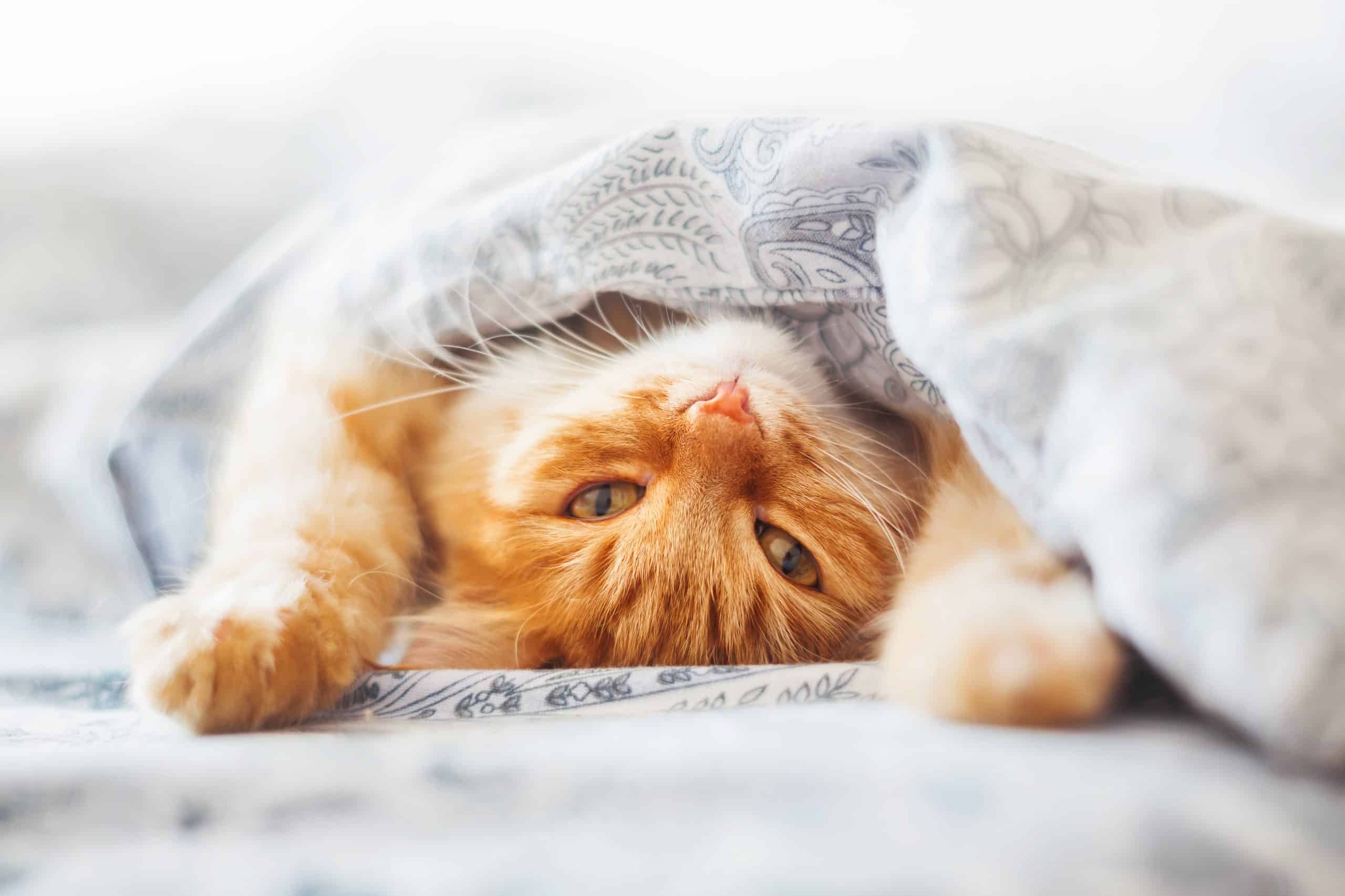Cats and dogs: Managing their stress naturally

Just like humans, animals can get stressed out. Your dog or cat may develop unwanted behaviors that are simply a response to anxiety. Pet parents must be on the lookout for the appearance of worrying symptoms and be able to identify the source of this stress. Natural solutions can be used to keep them calm.
Symptoms of a stressed animal
Owners are responsible for the well-being of their pets, and it’s important that your furry friend feels good from nose to tail. Therefore, pay attention to any change in behavior:
- Inappropriate behavior: your pet is aggressive with you and/or fights with other animals.
- Sudden uncleanliness: they urinate and defecate in inappropriate places.
- An increase in appetite: your pet is constantly asking for food.
- Loss of appetite: they refuse to eat and lose a significant amount of weight.
- Skin issues: your pet is scratching, losing hair and grooming in an unusual way.
- Hyperactivity: they claw everything or damage the furniture; they bark or meow for no apparent reason.
- Refusal to play: your pet will hide and isolate all day long; they refuse any physical activity.
Identifying what causes stress
There are certain situations where your pet can develop stress. Pets become accustomed to their surroundings, so a change in their environment or an unusual situation can trigger anxiety. These ‘red flag’ situations will need to be quickly identified:
- Separation: loneliness and boredom can cause your pet to feel stressed. Gradually get them used to being alone, to prevent the appearance of what is known as “separation anxiety”: 30 minutes at first, then 1 hour, 2 hours, etc.
- Intermittent presence at home: your constant presence followed by a prolonged absence – as has been the case during the lockdown and subsequent lifting of restrictions – can also disrupt your pets’ routine and trigger anxiety.
- Moving to a new home: a new environment can be a stressor for your pet. Having lost familiar territory, they must now become familiar with new surroundings.
- A new housemate: introducing a new pet or a newborn can be anxiety-triggering for your furry friend; they may see this stranger as an intruder in their territory.
- An adoption: the pet is coming into a new environment and may seem lost. Allowing time for them to adjust is essential.
- Car travel: transportation can be complicated if your pet is not used to it. Getting them progressively used to the car is the best solution, along with the right treatment. It may be useful to associate the car with a positive experience (a game, reward, etc.).
- Vet visits: it is common for animals to be anxious in the veterinary waiting room. They can feel the pheromones left behind by other animals.
- Strange noises: construction work, thunderstorms or fireworks can be stress-inducing, as they are sudden and extremely loud.
- An underlying disease: a visit to your vet is strongly advised to rule out any evidence of disease (joint, renal, cardiac, etc.).
Taking care of your anxious animal

First, make sure to visit a veterinarian to rule out any risk of disease. During the visit, he will be able to make a diagnosis and recommend behavioral solutions to treat your pet’s stress:
- Visiting a qualified behavioral veterinarian is a good solution. This specialist will help you better understand the reasons for your pet’s anxiety and administer behavioral therapy.
- The environment must be adjusted:
- For cats: It is important to remember that cats are territorial animals and creatures of habit. Care should be taken not to move their personal belongings, in order to avoid unnecessary stress due to a change in environment.
- For dogs: Their sleeping area, water bowl and toys must remain accessible to reassure them. When walking, it is important that they are both physically and mentally challenged.
Natural products can give these pets a boost. The use of aromatherapy is a good option. By stimulating the olfactory pathways, you can induce specific feelings and emotions for a relaxing effect. Dogs and cats have a very developed sense of smell, indeed. Their highly developed sense of smell allows them to pick up and amplify the positive odors (essential oils, pheromones, etc.).
Céline Taphaléchat, Blogger for "Une Belle Vie De Chat": http://www.unebelleviedechat.com/

